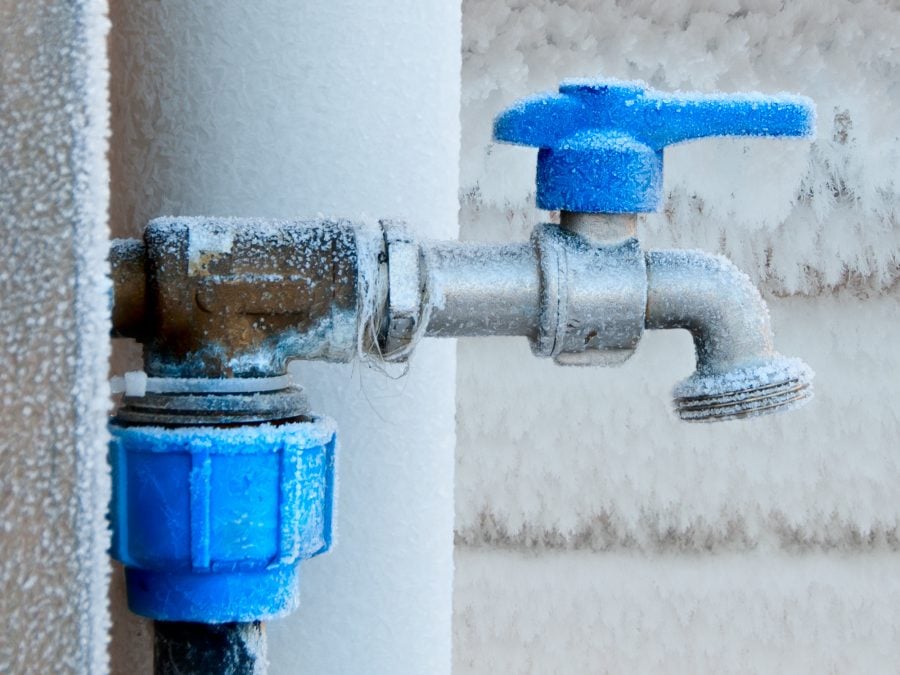Tips to Prevent Frozen Pipes in Cold Weather: Pro Guidance
Tips to Prevent Frozen Pipes in Cold Weather: Pro Guidance
Blog Article
Are you currently in search of insight around How to prepare your home plumbing for winter weather?

Winter can ruin your plumbing, especially by freezing pipelines. Below's how to stop it from taking place and what to do if it does.
Introduction
As temperature levels drop, the danger of frozen pipes rises, potentially bring about costly repair work and water damages. Comprehending just how to stop icy pipes is important for homeowners in chilly climates.
Prevention Tips
Protecting prone pipes
Wrap pipes in insulation sleeves or utilize heat tape to safeguard them from freezing temperatures. Focus on pipes in unheated or exterior areas of the home.
Heating techniques
Keep interior spaces effectively heated up, particularly areas with pipes. Open cabinet doors to permit cozy air to distribute around pipes under sinks.
How to recognize icy pipelines
Try to find lowered water flow from faucets, uncommon smells or noises from pipes, and noticeable frost on subjected pipes.
Long-Term Solutions
Structural changes
Consider rerouting pipes away from outside wall surfaces or unheated areas. Add additional insulation to attics, basements, and crawl spaces.
Updating insulation
Buy premium insulation for pipelines, attic rooms, and wall surfaces. Proper insulation aids preserve consistent temperatures and minimizes the threat of frozen pipelines.
Protecting Outside Pipes
Garden tubes and outside taps
Separate and drain pipes garden tubes before winter months. Set up frost-proof spigots or cover outside faucets with insulated caps.
Recognizing Frozen Pipes
What triggers pipelines to ice up?
Pipelines freeze when subjected to temperature levels below 32 ° F (0 ° C) for prolonged periods. As water inside the pipes freezes, it broadens, taxing the pipe walls and possibly triggering them to break.
Risks and damages
Icy pipes can cause water disruptions, residential property damage, and pricey fixings. Burst pipes can flood homes and trigger considerable structural damage.
Signs of Frozen Water Lines
Determining frozen pipelines early can stop them from rupturing.
What to Do If Your Pipes Freeze
Immediate actions to take
If you suspect icy pipelines, keep faucets open up to eliminate pressure as the ice thaws. Use a hairdryer or towels taken in hot water to thaw pipelines slowly.
Verdict
Preventing icy pipelines requires aggressive measures and fast actions. By comprehending the causes, indications, and safety nets, home owners can shield their plumbing during cold weather.
5 Ways to Prevent Frozen Pipes
Drain Outdoor Faucets and Disconnect Hoses
First, close the shut-off valve that controls the flow of water in the pipe to your outdoor faucet. Then, head outside to disconnect and drain your hose and open the outdoor faucet to allow the water to completely drain out of the line. Turn off the faucet when done. Finally, head back to the shut-off valve and drain the remaining water inside the pipe into a bucket or container. Additionally, if you have a home irrigation system, you should consider hiring an expert to clear the system of water each year.
Insulate Pipes
One of the best and most cost-effective methods for preventing frozen water pipes is to wrap your pipes with insulation. This is especially important for areas in your home that aren’t exposed to heat, such as an attic. We suggest using foam sleeves, which can typically be found at your local hardware store.
Keep Heat Running at 65
Your pipes are located inside your walls, and the temperature there is much colder than the rest of the house. To prevent your pipes from freezing, The Insurance Information Institute suggests that you keep your home heated to at least 65 degrees, even when traveling. You may want to invest in smart devices that can keep an eye on the temperature in your home while you’re away.
Leave Water Dripping
Moving water — even a small trickle — can prevent ice from forming inside your pipes. When freezing temps are imminent, start a drip of water from all faucets that serve exposed pipes. Leaving a few faucets running will also help relieve pressure inside the pipes and help prevent a rupture if the water inside freezes.
Open Cupboard Doors
Warm your kitchen and bathroom pipes by opening cupboards and vanities. You should also leave your interior doors ajar to help warm air circulate evenly throughout your home.

Hopefully you liked our part on Prevent Frozen Pipes . Thanks a ton for finding the time to read our content. Enjoyed our posting? Please quickly share it. Help other people find it. We cherish your readership.
Or Book Technician Here Report this page